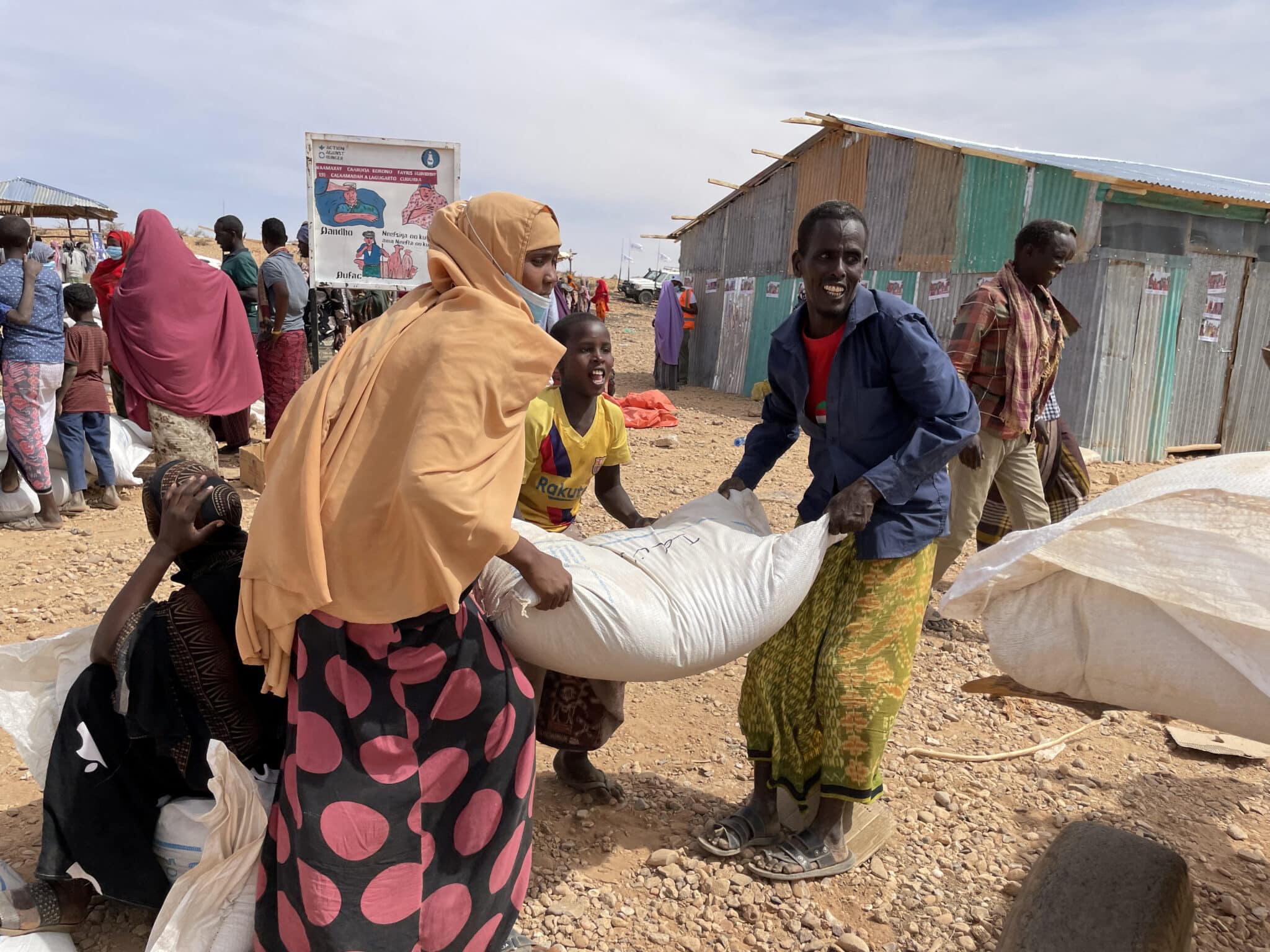
Report: In West and Central Africa, Nearly 55 Million People Will Struggle To Feed By 2024
According to a report, between June and August of 2024, around 55 million people in West and Central Africa will face food insecurity.
The Permanent Inter-State Committee for Drought Control in the Sahel (CILSS) released its March 2024 Cadre Harmonisé food security estimate, which predicts that nearly 55 million people in West and Central Africa will struggle to feed themselves during the June–August lean season.
In a joint statement released on Friday, the United Nations World Food Program (WFP), United Nations Food and Agriculture Organization (FAO), and United Nations Children’s Fund (UNICEF) said that this number shows a fourfold increase over the last five years and represents a four million increase in the number of people experiencing food insecurity when compared to the November 2023 forecast.
The statement expressed concern over the situation, noting that 2,600 people in northern Mali, which is plagued by war, are assessed to be at risk of catastrophic hunger (IPC/CH phase 5). Beyond recurrent conflicts, the most recent data also shows a notable shift in the variables causing food insecurity in the region.
It claimed that the food crisis has gotten worse for regular people all around the area, with Nigeria, Ghana, Sierra Leone, and Mali being among the most hit. Economic issues include currency devaluations, skyrocketing inflation, stagnated output, and trade restrictions have also contributed to the situation.
The statement bemoaned the fact that, in comparison to the five-year average, the prices of major staple grains continue to rise throughout the region, rising from 10% to over 100%. It attributed this to fuel and transport costs, ECOWAS sanctions, and restrictions on the flow of agropastoral products. Notably, currency inflation is a major cause of price volatility in Ghana (23%), Nigeria (30%), Sierra Leone (54%), Liberia (10%), and The Gambia (16%).
It explained that despite significant fiscal restrictions and macroeconomic issues, West and Central Africa continue to rely largely on imports to cover the food demands of their populations. As a result, import costs are rising as a result of currency devaluation and high inflation.
As stated in the declaration. There will be a 12-million-ton shortfall in cereal production for the 2023–2024 growing season, and there will be a two percent decrease in the amount of cereals available per person over the previous growing season.
“The time to act is now,” stated Margot Vandervelden, the WFP’s Acting Regional Director for Western Africa, in response to the situation. To keep things from getting out of hand and to make sure that no one is left behind, we need all of our partners to stand up, get involved, adopt, and implement creative programs. We also need to increase our investments in resilience-building and longer-term solutions for the future of West Africa.
In addition to 16.7 million children under five who are acutely malnourished and more than two out of three households unable to afford a healthy diet, the statement bemoaned the alarmingly high rate of malnutrition in West and Central Africa, noting that eight out of ten children between the ages of six and 23 months do not consume the minimum number of foods necessary for optimal growth and development.
Acute malnutrition in children under five, teenagers, and pregnant women is primarily caused by high food prices, restricted access to healthcare, and poor diets. Up to 31% of women in northern Nigeria between the ages of 15 and 49 suffer from acute malnutrition.
“For children in the region to reach their full potential, we need to ensure that each girl and boy receives good nutrition and care, lives in a healthy and safe environment, and is given the right learning opportunities,” stated Gilles Fagninou, Regional Director of United Nations Children’s Fund (UNICEF).The key to a future workforce that is knowledgeable and productive is providing early and childhood nutrition. In order to significantly impact children’s life, we must prioritize the holistic well-being of the kid and fortify the systems of education, health, food, water and sanitation, and social protection.
FAO, UNICEF, and WFP called on national governments, international organizations, civil society, and the private sector to implement sustainable solutions that support food security, improve agricultural productivity, and lessen the negative effects of economic volatility in response to the needs that are growing more and more.
They emphasized that in order to guarantee that everyone has access to food, governments and the business sector must work together.
According to the statement, millions of individuals in Senegal, Mali, Mauritania, Nigeria, and Niger currently gain from national social protection programs funded by WFP and UNICEF. Both organizations are giving the governments of Burkina Faso and Chad more help. Similar to this, through resilience-building initiatives, FAO, IFAD, and WFP have partnered with organizations throughout the Sahel to boost productivity, availability, and access to wholesome food.
“To respond to the unprecedented food and nutrition insecurity, it is important to mobilize for the promotion and support of policies that can encourage the diversification of plant, animal, and aquatic production as well as the processing of local foods (through the provision of agricultural inputs, access to productive resources for all to stimulate increased production and improve product availability),” stated Dr. Robert Guei, the FAO Sub-Regional Coordinator for West Africa and the Sahel.
In addition to ensuring year-round access to good, reasonably priced food, this is critical to preserve biodiversity, which may help lessen the effects of climate change, as well as to combat rising food costs and safeguard the livelihood of the impacted population.
All Categories
Recent Posts
Tags
+13162306000
zoneyetu@yahoo.com



